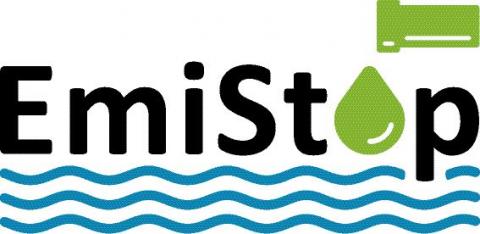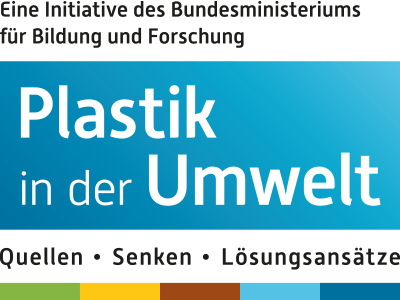EmiStop
EmiStop

Dr.-Ing. Eva Bitter
EnviroChemie GmbH
In den Leppsteinswiesen 9
64380 Rossdorf
Phone: +49 6154-6998-57
e-mail: eva.bitter@envirochemie.com
This project systematically detected emissions of plastics into wastewater from relevant industries. Emissions levels were analysed along all points of the value chain (production, transport, processing, and cleaning of synthetic materials).
The goal was to select wastewater treatment technologies that optimise the reduction of emissions of plastics for the respective value chain. The project evaluated existing technologies for separating particles, investigated deposition rates, and developed approaches for technical optimisation. Optimisation also includes technological developments such as flocculants. Researchers conducted tests in both laboratory and pilot project settings – selected large scale technical wastewater treatment plants were investigated at industrial facilities.
Due to the existing analytical uncertainties, the following detection methods were used to evaluate the existing and developed technologies:
- Dynamic differential calometry for qualification and quantification (concentrations)
- Raman spectroscopy for qualification and quantification (particle numbers)
- Correlations of the plastic concentrations to routine water chemical analyses (for a retrospective estimation of the plastic loads)
- Tracer test with magnetic plastic particles (simple and reliable quantification in large dilutions) for balancing in laboratory and pilot tests
Apart from the technical aspects, the focus of this project was also on socio-economic aspects. Thus, measures to prevent economic losses and retain value were reviewed together with the associated industrial enterprises and evaluated with partners from the scientific community and other interest groups.
Main areas of work
- Standardisation of sampling and sample preparation for industrial wastewater (in alignment with Plastik-Net and other joint research projects)
- Quantitative and qualitative measurement of plastic concentrations in industrial wastewater using Raman spectroscopy and dynamic differential calorimetry
- Extended data collection at the sampled industrial waste water treatment plants for the derivation of the plastic loads and testing of a correlation between the measurement results and routine water chemical analyses
- Development of magnetic plastic particles in the micrometre range with the physical properties of relevant types of plastic
- Development of a tracer test with magnetic plastic particles
- Assessment of technologies for particle separation with regard to the retention of (micro-) plastic particles
- Optimisation of particle separation technologies
- Development of flocculants for the targeted improvement of the retention of individual types of plastics and their mixtures
- Delphi surveys of industry and sector associations as well as of politics and science to identify perceived risks and obstacles as well as opportunities and the willingness to participate
- Multi-criteria analysis for the development of weighted, ecological and socio-economic criteria for the sustainability assessment of the project results
WP 1 Development of analytical methods for plastic particles
Contact persons
Prof. Dr. Jutta Kerpen, RheinMain University, Institute for Environmental and Process Engineering, Department of Wastewater Treatment, Am Brückweg 26, 65428 Rüsselsheim, e-mail: jutta.kerpen@hs-rm.de
Prof. Dr. Susanne Lackner, Technical University of Darmstadt, Institute IWAR, Department of Wastewater Engineering, Franziska-Braun-Straße 7, 64287 Darmstadt, e-mail: s.lackner@iwar.tu-darmstadt.de
Prof. Dr.-Ing. Markus Engelhart, Technical University of Darmstadt, Institute IWAR, Department of Wastewater Technology, Franziska-Braun-Straße 7, 64287 Darmstadt, e-mail: m.engelhart@iwar.tudarmstadt.de
Project partner
EnviroChemie
Short description
A routinely applicable sampling and sample preparation procedure were developed in order to create a uniform and comparable database for industrial wastewater. For the subsequent qualification and quantification of microplastics in (industrial) wastewater samples, the methods of dynamic differential calorimetry and Raman spectroscopy were adapted to industrial wastewater. The respective analysis results were compared with standardised routine measurements and operational self-analysis to determine correlations.
WP 2 Tracer test
Contact persons
Prof. Dr. Susanne Lackner, Technical University of Darmstadt, Institute IWAR, Department of Wastewater Engineering, Franziska-Braun-Straße 7, 64287 Darmstadt, e-mail: s.lackner@iwar.tu-darmstadt.de
Dr. Kyriakos Eslahian, BS-Partikel GmbH, Nestléstr. 41, 55120 Mainz, e-mail: eslahian@bs-partikel.de
Short description
In order to balance individual process technologies for plastic particle retention in real water matrices, a method for the quantification of magnetic plastic particles by means of magnetic susceptibility scales was established. For this purpose, particles in the size range from 1 μm to 300 μm were synthesised with the greatest possible magnetic susceptibility, which imitate the morphologies and chemical properties of environmental plastic particles.
Furthermore, a continuous method for the production of these particles was established in order to ensure the best possible reproducibility and scalability for subsequent applications.
WP 3 Identification of industrial entry points
Contact persons
Prof. Dr. Jutta Kerpen, RheinMain University, Institute for Environmental and Process Engineering, Department of Wastewater Treatment, Am Brückweg 26, 65428 Rüsselsheim, e-mail: jutta.kerpen@hs-rm.de
Prof. Dr. Susanne Lackner, Technical University of Darmstadt, Institute IWAR, Department of Wastewater Engineering, Franziska-Braun-Straße 7, 64287 Darmstadt, e-mail: s.lackner@iwar.tu-darmstadt.de
Prof. Dr.-Ing. Markus Engelhart, Technical University of Darmstadt, Institute IWAR, Department of Wastewater Technology, Franziska-Braun-Straße 7, 64287 Darmstadt, e-mail: m.engelhart@iwar.tudarmstadt.de
Project partner
EnviroChemie, inter 3
Short description
The entry points of microplastics from industrial wastewater into surface waters were determined by uniform characterisation and quantification of the plastic emissions of individual industrial plants. The evaluation of plastic emissions on the basis of mass flows, variations and production information with key figure system and balance tools, hotspots and temporal variations of the particle input were identified.
WP 4 Balancing of technical systems
Contact persons
Dr.-Ing. Eva Bitter, EnviroChemie GmbH, F&E, In den Leppsteinswiesen 9, 64380 Rossdorf, e-mail: eva.bitter@envirochemie.com
Prof. Dr.-Ing. Markus Engelhart, Technical University of Darmstadt, Institute IWAR, Department of Wastewater Technology, Franziska-Braun-Straße 7, 64287 Darmstadt, e-mail: m.engelhart@iwar.tudarmstadt.de
Project partner
TU-AW, inter3, HSRM
Short description
In laboratory and pilot tests, various process techniques (filtration in various filter units such as membrane plants, double-layer filters, cloth filters; flocculation in combination with filtration, flotation or sedimentation) were evaluated with regard to plastic particle removal. For this purpose, the tracer particles developed in WP 2 were used, which enable the use of synthetic and real industrial waste water. Furthermore, the existing industrial process technology was evaluated at different industrial sites and optimised with regard to the separation of plastic particles.
WP 5 Optimisation of plastic retention
Contact persons
Dr.-Ing. Eva Bitter, EnviroChemie GmbH, F&E, In den Leppsteinswiesen 9, 64380 Rossdorf, e-mail: eva.bitter@envirochemie.com
Prof. Dr.-Ing. Markus Engelhart, Technical University of Darmstadt, Institute IWAR, Department of Wastewater Technology, Franziska-Braun-Straße 7, 64287 Darmstadt, e-mail: m.engelhart@iwar.tudarmstadt.de
Project partner
TU-AW
Short description
Based on the results of WP 4, the pilot plants were adapted by specific design changes (e.g. flow control, sludge removal, conveyor technology) and the success of these optimisations was evaluated in further balancing experiments. For the industries considered, in addition to constructive optimisation of process engineering, production-integrated measures to reduce plastic emissions were derived. The production information collected in WP 3 served as the basis for this.
WP 6 Development of flocculants for plastics sorts
Contact persons
Dr.-Ing. Eva Bitter, EnviroChemie GmbH, F&E, In den Leppsteinswiesen 9, 64380 Rossdorf, e-mail: eva.bitter@envirochemie.com
Project partner
TU-AT, TU-AW
Short description
In experiments with beakers, individual polymers for the targeted flocculation of particles of different types of plastic in the size range from 10 to 300 μm were tested. The results were then used to test specific blends of polymers to produce the most stable flakes of particles of individual plastic types. With these results, the tests and developments were extended to mixtures of different types of plastics.
The laboratory test results were then supplemented by pilot tests using tracer particles developed in WP 2.
WP 7 Risk and potential analysis
Contact person
Dipl.-Ing. Wolf Raber, inter 3 GmbH - Institute for Resource Management, Otto-Suhr-Allee 59, 10585 Berlin, e-mail: raber@inter3.de
Project partner
TU-AT, TU-AW, EnviroChemie, HSRM, BS-Partikel
Short description
To maximise the broad application of the EmiStop optimisation approaches and avoidance strategies, the risks and potentials were identified from the perspective of the key actors, evaluated and fed into the project at an early degree of technology maturity. Furthermore, an expert-supported set of sociopolitical, economic, and ecological evaluation criteria and a meaningful set of indicators were derived in order to analyse and evaluate the multicriterial optimisation approaches and avoidance strategies and in a next step measures for implementation and diffusion.
WP 8 Management and communication
Contact persons
Dr.-Ing. Eva Bitter, EnviroChemie GmbH, F&E, In den Leppsteinswiesen 9, 64380 Rossdorf, e-mail: eva.bitter@envirochemie.com Dr. Anja Steglich, inter 3 GmbH - Institute for Resource Management, 10585 Berlin, e-mail: steglich@inter3.de
Project partner
TU-AT, TU-AW, HSRM, BS-Partikel
Short description
In order to disseminate and implement the project results, industrial companies were actively involved and dialogue is carried out with experts from relevant industry associations (e.g. PlasticsEurope e.V., IK Industrievereinigung Plastikverpackungen e.V., GKV Gesamtverband Plastikverarbeitende Industrie e.V.). The collaboration was commissioned to a) develop the results into a consensual overall perspective, b) prepare these into action-oriented and implementable guidelines and c) make them available via established channels and multipliers, e.g. the Responsible Care Initiative of the chemical industry.
